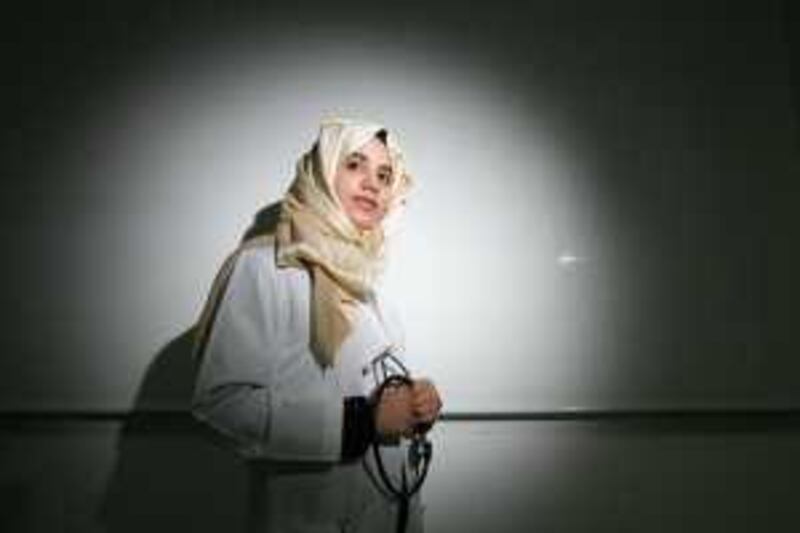Nouf al Noon is one of a growing number of young Emirati women studying to become physicians and surgeons. And, unlike some, she intends to practise her new skills here. Mitya Underwood reports Nouf al Noon is a pioneer both in her native Dubai and in the Emirati community. Ms al Noon, 22, who is three years into her five-year degree in surgery and medicine at the Gulf Medical University in Ajman, is helping blaze a trail for more Emirati women to enter the medical profession.
"There are certainly more Emiratis going into health care," she says. "It may be that older generations are more liberal now and allowing their children, especially daughters, to start careers in medicine. "Also, as education has increased, people have learnt more about genetics and biology. This has attracted people to work in medicine." The fact that there are more women than men studying health care is no surprise, says Ms al Noon, who hopes to become a heart surgeon.
"It is easier for a woman to study here, where they are nearer their families. Men can go abroad." However, high tuition fees can prove a major obstacle for medical students of either gender. Ms al Noon pays Dh85,000 (US$23,000) a year to study at a private university. Scholarships are available, she says, but limited. "It is a lot of money and not everyone can pay or wants to pay that. I am lucky, my parents are very supportive and help me. I have never wanted to do anything else, so I was determined to do it," says Ms al Noon, whose family is testament to the country's education system.
Among her four siblings are an engineer and an information technology expert for Nasa, the US space agency. Her mother is a teacher and her father a businessman. She says persuading qualified Emiratis to stay in the UAE once they complete their studies is often a bigger struggle than enticing them to take it up in the first place. Many Arab medical professionals working in the region have previously spent time in the US or Europe. Sometimes they do not come back at all.
"I might go elsewhere for more knowledge and experience but then I would come back," Ms al Noon says. "Whatever I do I want to learn, to improve my country in that field. So I will definitely come back. I want to apply what I know to my country and raise the healthcare standards in my country. I don't want to apply it anywhere else." Many of the UAE's medical universities have strong connections to large hospitals, so students get extensive practical experience.
UAE University, a government institution, offers a number of courses to nationals that, staff say, are becoming increasingly popular, particularly among women. Those who qualify will have attained a level of expertise that is, says Dr Mohamed Yousif Baniyas, the acting dean of the university's Faculty of Medicine and Health Sciences, among "the best in the region". The institution offers a range of courses, including medicine, pharmacology, microbiology, and other specialised subjects. In addition, 400 of its students gain practical experience at the nearby Tawam and Al Ain hospitals.
However, Dr Baniyas would like to see more Emiratis going into medicine. "We have some very fine young men and women," he says. "The quality is very high and the numbers are increasing. Lots has changed but there is still room for improvement. "UAE national physicians make up about 10 per cent of practising physicians and our aim is to increase this to at least match the demographic of the population here. We would like to see more like 20 or 25 per cent Emiratis. It will take time but it is worth it for those who work in the profession.
"If you have passion for patient care and education and research, health care is the only area where you get all three in one." @Email:munderwood@thenational.ae






